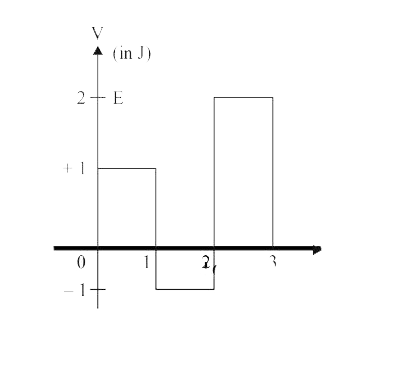Action potentials are usually propagated in only one direction along an axon because :
(a) nodes of Ranvier only conduct in one direction
(b) brief refractory period prevents a depolarization from occurring in the direction from which the impulse came
(c) axon hillock has a higher membrane potential than the tips of the telodendria
(d) both sodium and potassium voltage-sensitive gates open in one direction
The correct Answer is:B
Step-by-Step Solution:
1. Understanding Action Potentials: Action potentials are electrical signals that propagate along the axon of a neuron. They involve a rapid change in membrane potential due to the movement of ions across the neuron's membrane.
2. Resting Potential: At rest, the inside of the neuron is negatively charged compared to the outside. This resting potential is maintained by the sodium-potassium pump, which actively transports sodium ions out of the cell and potassium ions into the cell.
3. Depolarization Phase: When a stimulus occurs, sodium channels open, allowing sodium ions to rush into the neuron. This influx of positive ions causes the inside of the neuron to become more positive (depolarization).
4. Repolarization Phase: After depolarization, potassium channels open, allowing potassium ions to flow out of the neuron. This outflow of positive ions causes the inside of the neuron to become negative again (repolarization).
5. Refractory Period: After an action potential, there is a brief refractory period during which the sodium channels cannot reopen. This means that no new action potential can be initiated in the region where the previous action potential just occurred.
6. Direction of Propagation: Because of the refractory period, the action potential can only propagate in one direction—away from the point of origin. The area behind the action potential is in a refractory state and cannot depolarize again immediately.
7. Conclusion: Thus, the reason action potentials are propagated in only one direction along an axon is due to the brief refractory period that prevents depolarization from occurring in the direction from which the impulse came.
Final Answer: The action potentials are usually propagated in only one direction along an axon because the brief refractory period prevents depolarization from occurring in the direction from which the impulse came.
---
Topper's Solved these Questions
- NEURAL CONTROL AND CO-ORDINATION BOOK - ICSECHAPTER - NEURAL CONTROL AND CO-ORDINATION EXERCISE - TEST YOUR PROGRESS ( OBJECTIVE TYPE QUESTIONS ) (Fill in the blanks with appropriate words.)
14 Videos
- NEURAL CONTROL AND CO-ORDINATION BOOK - ICSECHAPTER - NEURAL CONTROL AND CO-ORDINATION EXERCISE - TEST YOUR PROGRESS ( OBJECTIVE TYPE QUESTIONS ) (State whether the following statements are true or false .)
9 Videos
- MORPHOLOGY OF FLOWERING PLANTS BOOK - ICSECHAPTER - MORPHOLOGY OF FLOWERING PLANTS EXERCISE - NCERT TEXTBOOK QUESTIONS WITH SOLUTIONS
25 Videos
- NEURAL CONTROL AND COORDINATIONBOOK - ICSECHAPTER - NEURAL CONTROL AND COORDINATIONEXERCISE - (Review question) long answer
20 Videos
Similar Questions
Knowledge Check
A plane electromagnectic wave propagating along x-direction can have the following pairs of E and B.
AEy,BzBEz,ByCEx,ByDboth (a) and (b)
A plane electromagnectic wave propagating along x-direction can have the following pairs of E and B.
View SolutionA plane electromagnectic wave propagating along x-direction can have the following pairs of E and B.
View SolutionState True/False
All spontaneous process proceed in one direction only.
View SolutionHow do nerve impulses on a neuron travel only in one direction?
View SolutionWhy do impulses in a neuron travel in one direction only?
View SolutionThe potential energy ‘V’ of a particle moving along the positive x-direction in a conservative force field varies as shown in the figure. The total energy is E=2. Draw the corresponding kinetic energy K vs x graph.

View SolutionFor plane electromagnetic waves propagating in the z-direction , which one of the following combinations gives the correct possible direction for →Eand→B field respectively ?
View Solution
